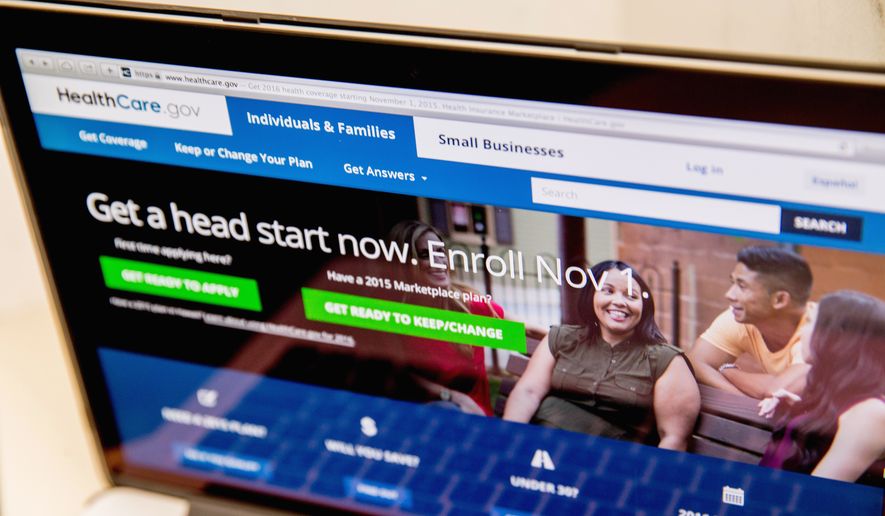Most Americans are ducking Obamacare’s tax penalty, claiming an exemption from the “individual mandate,” tax-filing company TurboTax said Tuesday, signaling how far the Obama administration still has to go in meeting its goal of universal health coverage.
All told, seven in 10 taxpayers using TurboTax’s online system claimed an exemption, the company said, offering the first glimpse at how tax filers are coping with the Affordable Care Act’s most contentious provisions.
Many of those say even the cheapest plans available to them at work or on Obamacare’s exchanges are still too expensive, and so they claim the IRS’s financial burden exemption in refusing to gain coverage.
Others said they were exempt because they’d recently been evicted, had a close family member die, or had another hardship that excused them from the mandate. The rate of exemptions mirrors what TurboTax saw during the full 2014 tax season, when filers dealt with Obamacare for the first time.
Also Tuesday, a lengthy report by the Health and Human Services Department’s inspector general said the administration received 18 “documented warnings” about HealthCare.gov’s shortcomings in the run-up to its disastrous October 2013 launch.
“Most critical was the absence of clear leadership, which caused delays in decision-making, lack of clarity in project tasks, and the inability of CMS to recognize the magnitude of problems as the project deteriorated,” the IG report said.
HealthCare.gov is functioning fine now, though consumers are still wading through the law’s mandates and phased-in tax penalties, which are starting to take a real bite.
The tax for failing to hold insurance jumped from $95 or 1 percent of qualified income — whichever is greater — in 2014 to $325 or 2 percent of income in 2015.
Filers who must pony up the 2015 penalty this season will see their pain more than double, to $695 or 2.5 percent of income, at tax time next year, unless they find a way to get insured this year.
Yet certain people are exempt from the mandate, either because they do not earn enough money or because they fit certain categories — for example, they are in prison, in the country illegally or take care of their own health costs through a religious health-care ministry.
Others, including victims of domestic violence, can qualify for a series of “hardship” exemptions.
“The IRS reported that about 300,000 people who paid the penalty likely qualified for an exemption last year. With the penalty nearly doubling this year, TurboTax urges those without health coverage to see if they qualify for an exemption from a tax penalty,” said Debra Hammer, the company’s spokeswoman for Obamacare issues.
The tax-prep company also says tax filers haven’t been tripped up by the IRS’ decision to delay the issuance of brand-new tax forms.
Insurers and employers issued the forms, known as 1095-Bs and 1095-Cs, so that filers have a record of their coverage and compliance with the mandate, although they aren’t attached to returns.
The IRS receives its own versions of the forms, however, and analysts said the delay could make it difficult for auditors to crack down on people who flout the mandate and claim full refunds, even though they owe a penalty.
TurboTax noted that filers who received taxpayer-subsidized coverage on an Obamacare exchange will need to include a form, 1095-A, that helps them reconcile their amount of subsidy with their actual income in 2015.
Roughly 800,000 HealthCare.gov customers received 1095-A forms with errors last year — a mix-up that evoked the law’s flawed web rollout.
The administration doesn’t expect to make the same mistake this year, though Republican critics say the law will continue to cause problems.
“The website is part of the bigger problem behind Obamacare,” Sen. Chuck Grassley, Iowa Republican, said Tuesday. “A massive undertaking was rushed through on a partisan basis. The law was badly written and poorly implemented.”
• Tom Howell Jr. can be reached at thowell@washingtontimes.com.




Please read our comment policy before commenting.